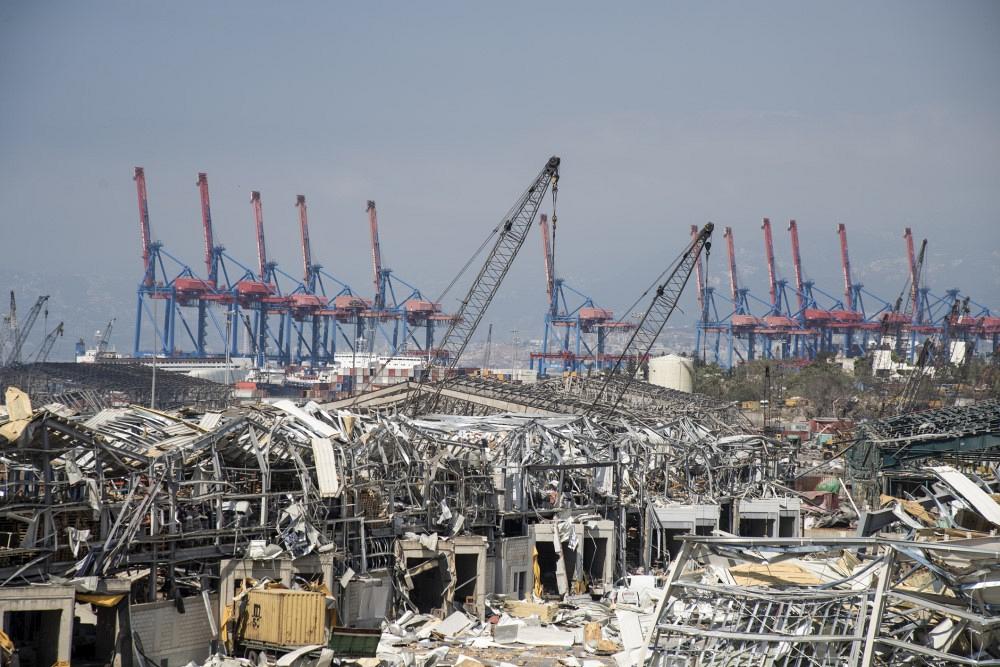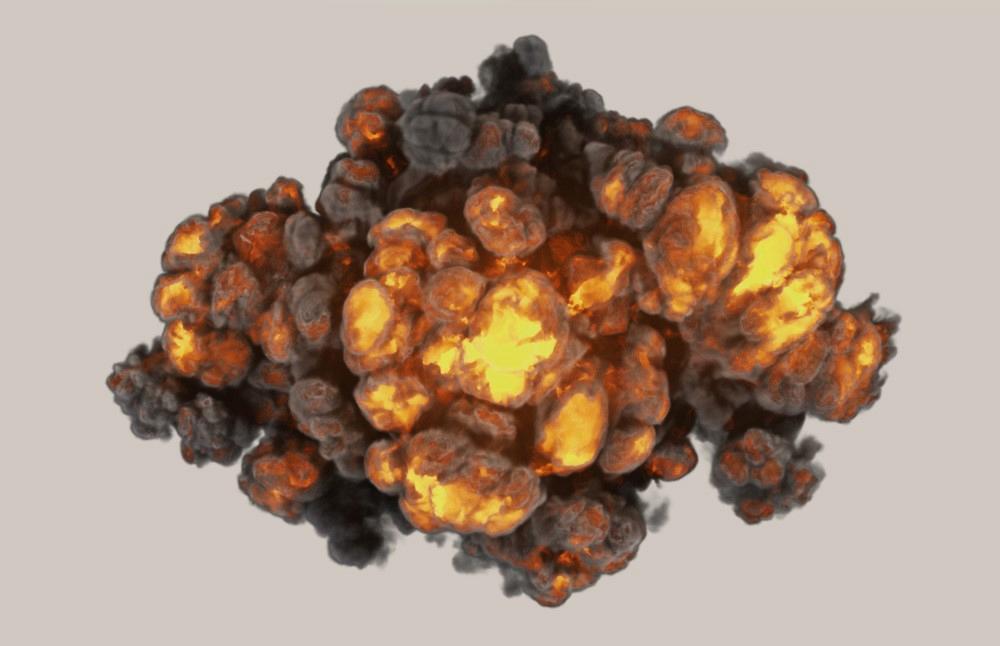Owner, Brown Dog Welding
- FMA
- The Fabricator
- FABTECH
- Canadian Metalworking
Categories
- Additive Manufacturing
- Aluminum Welding
- Arc Welding
- Assembly and Joining
- Automation and Robotics
- Bending and Forming
- Consumables
- Cutting and Weld Prep
- Electric Vehicles
- En Español
- Finishing
- Hydroforming
- Laser Cutting
- Laser Welding
- Machining
- Manufacturing Software
- Materials Handling
- Metals/Materials
- Oxyfuel Cutting
- Plasma Cutting
- Power Tools
- Punching and Other Holemaking
- Roll Forming
- Safety
- Sawing
- Shearing
- Shop Management
- Testing and Measuring
- Tube and Pipe Fabrication
- Tube and Pipe Production
- Waterjet Cutting
Industry Directory
Webcasts
Podcasts
FAB 40
Advertise
Subscribe
Account Login
Search
What the explosion in Beirut teaches us about shop and welder safety
The August blast at the Lebanon port renews concerns over metal fabrication workplace hazards
- By Josh Welton
- October 23, 2020
Who is responsible for your safety?
“Safety first.”
“Safety is Job 1.”
“Safety is no accident.”
Those are catchphrases that look good on posters in the hallway, but I don’t know many workers who are stoked when health and safety reps walk the floor. At one shop I worked at, if we saw the company safety rep coming toward the fab area, whoever was operating the brake press would just leave the machine until she was gone. In that case, the rules she wanted us to follow were over the top and made operating the press impossible.
One of the things about being a skilled tradesman is understanding and negotiating the danger that is inherent with what we do. We deal with unforgiving machinery; heights; large, heavy, and awkward objects; gases and fluids under pressure; fire; and explosive gases, just to name a few. We’ve been trained on the pitfalls and consequences of ignoring protocol, most often even more comprehensively than company safety representatives.
That being said, it’s good that we have checks in place, someone whose job it is to oversee our work practices and conditions. Who among us has not played Russian roulette because of the pressure from bosses, or co-workers, or even from ourselves to get a job done as quickly as possible? I know I have, and I’ve witnessed a few near misses in my career.
I was thinking about this while reading about the recent massive explosion in Beirut. It seems obvious that Lebanon does not have the same type of oversight that we do in America, or Canada, or the U.K., or Australia. Add that to an area like their harbor, which is run by organizations that are corrupt from the bottom all the way up to the highest levels of government, and you’re sitting on a powder keg.
While it seems some don’t believe the Lebanese government, from most reports it looks like a welder started the disaster with a spark. This from The New York Times:
“Multiple sources have reported that the disastrous explosion at Port of Beirut was sparked by hot work at a warehouse where officials had stored 2,750 tonnes of confiscated ammonium nitrate and a cache of fireworks. In a new report, senior officials provided Reuters with additional details: early this year they had learned that one of the warehouse's doors was broken, raising the risk that a malicious actor could steal this dangerous explosives-grade cargo. The port's welding contractors set off the cache while trying to repair the door to protect the cache. In the same hangar were jugs of oil, kerosene, and hydrochloric acid; five miles of fuse on wooden spools; and 15 tons of fireworks — in short, every ingredient needed to construct a bomb that could devastate a city.”
Uh, yeah. Five miles of fuse. Oil, kerosene, and hydrochloric acid. Fifteen tons of fireworks. And 2,700 tonnes of ammonium nitrate. If you saw this kind of situation in a movie you’d think, “There is no way on earth they had those ingredients together in real life.”

The devastating blast at a Beirut port in early August raises some alarming concerns about workplace safety, especially in metal fabrication and other industrial settings. Getty Images
Nearly all the blame, potentially all of the blame, goes to the corrupt politicians, contractors, and organized criminal groups who run the docks like a printing press for money. I don’t need to go into details here, but nobody shipped anything in or out of the harbor without greasing some palms. In this instance they confiscated the ammonium nitrate six years ago ... and just let it sit. Even the process of getting a welder out there to repair a door so “bad actors” couldn’t steal the stuff took close to a year.
Which brings us to the welder who was contracted to do the work. I’m not going to pretend to know what sort of training this person or people had, but it puts an exclamation mark on the idea that nobody can protect you like you can protect yourself. Just because your boss, your safety rep, or whoever handles the permits for hot work says you’re good to go doesn’t preclude you from scouting the workspace and securing the area’s potential dangers from exposure.
Use your training, experience, and common sense to block off, cover, or otherwise protect places that could combust with a spark. Keep an eye out for materials like magnesium that require different methods of damping out. Have on hand extinguishers rated to put out the types of fires that could start. And the job doesn’t end when your last spark flies; you need to monitor the area for potential flare-ups.
Most of the world assumed the welder died in the explosion, but more workers were recently arrested, bringing the total number of politicians and contractors arrested in connection to the case 22. The theory is that they completed their work hours before the explosion and perhaps embers from that job lit off the fuses, then eventually the fireworks, then the ammonium nitrate which created a blast that killed 200, injured 6,000, and caused over a billion dollars in damages. It was 1,100 times bigger than the Oklahoma City bombing. Did the welders leave their post too soon? Were they careless or were they unwittingly put in a dangerous situation?
Despite the fear that the complete truth will be buried by a shady government, I’m fascinated to see how this plays out, to see how far their courts say the culpability goes. Obviously, workers’ rights are more advanced in the U.S., but that doesn’t make this case any less interesting.
And it doesn’t make combustible stuff any less combustible. Google “welding accident” and peruse the many news blurbs regarding really bad incidents that, in most cases, could have been prevented by better risk assessment and preventive measures.
This isn’t meant to be some kind of exhaustive rundown of the dos and don’ts of staying safe, it’s just a reminder that what we do always has the potential to be dangerous, and you always need to be in control of your environment as much as possible.
subscribe now

The Fabricator is North America's leading magazine for the metal forming and fabricating industry. The magazine delivers the news, technical articles, and case histories that enable fabricators to do their jobs more efficiently. The Fabricator has served the industry since 1970.
start your free subscriptionAbout the Author

- Stay connected from anywhere

Easily access valuable industry resources now with full access to the digital edition of The Fabricator.

Easily access valuable industry resources now with full access to the digital edition of The Welder.

Easily access valuable industry resources now with full access to the digital edition of The Tube and Pipe Journal.
- Podcasting
- Podcast:
- The Fabricator Podcast
- Published:
- 04/16/2024
- Running Time:
- 63:29
In this episode of The Fabricator Podcast, Caleb Chamberlain, co-founder and CEO of OSH Cut, discusses his company’s...
- Trending Articles
Capturing, recording equipment inspection data for FMEA

Tips for creating sheet metal tubes with perforations

Are two heads better than one in fiber laser cutting?

Supporting the metal fabricating industry through FMA

Omco Solar opens second Alabama manufacturing facility

- Industry Events
16th Annual Safety Conference
- April 30 - May 1, 2024
- Elgin,
Pipe and Tube Conference
- May 21 - 22, 2024
- Omaha, NE
World-Class Roll Forming Workshop
- June 5 - 6, 2024
- Louisville, KY
Advanced Laser Application Workshop
- June 25 - 27, 2024
- Novi, MI



























